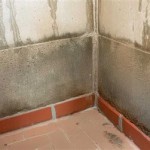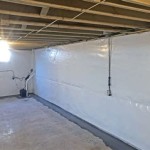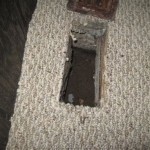Essential Aspects of Insulated Concrete Forms Basement Walls
When designing the basement of your new home, it's crucial to consider the materials used for the walls. Insulated concrete forms (ICFs), which combine insulation and formwork into a single unit, offer numerous advantages that make them an excellent choice for basement walls.
Energy Efficiency
ICFs provide exceptional energy efficiency, significantly reducing heating and cooling costs. The thick layer of insulation integrated into the forms creates a thermal barrier that minimizes heat loss and gains. This results in a more comfortable and energy-efficient living environment throughout the year.
Structural Integrity
ICFs contribute to the structural integrity of basement walls. The interlocking blocks create a continuous, reinforced concrete wall system that can withstand lateral loads such as soil pressure and hydrostatic forces. This provides peace of mind and ensures the longevity of the basement.
Moisture Resistance
ICFs are highly moisture-resistant, preventing water infiltration and preventing mold growth. The closed-cell foam insulation within the forms effectively resists water penetration, while the concrete exterior provides an additional barrier against moisture. This creates a dry and healthy basement environment.
Fire Resistance
The concrete used in ICFs provides excellent fire resistance, offering peace of mind in the event of a fire. The insulation material is also fire-retardant, helping to slow the spread of flames and protect the structural integrity of the basement.
Soundproofing
ICFs offer superior soundproofing compared to traditional basement wall materials. The thick foam insulation effectively absorbs and blocks sound transmission, creating a quieter living space. This is particularly beneficial in urban areas or near busy roads.
Cost-Effectiveness
While ICFs may have a slightly higher upfront cost compared to conventional basement materials, they can lead to significant long-term savings. The energy efficiency and durability of ICFs reduce heating and cooling expenses, while the reduced need for exterior wall finishes further lowers construction costs.
Installation Simplicity
ICFs are relatively easy to install, reducing construction time and labor costs. The modular blocks are interlocked and reinforced on-site, creating a seamless and efficient wall system.
Conclusion
Insulated concrete forms (ICFs) offer a comprehensive solution for basement walls, providing exceptional energy efficiency, structural integrity, moisture resistance, fire resistance, soundproofing, and cost-effectiveness. By choosing ICFs, homeowners can create a durable, comfortable, and energy-efficient living space that will add value to their property for years to come.

How To Waterproof Insulated Concrete Formwork Dry Direct

Etw Foundation Insulated Concrete Forms Icf 2 Xps On Interior And Exterior Buildingscience Com

Waterproofing Icf Foundations Two Steps Forward Three Back Iibec

Icf Foundation Pros And Cons Ontario Home Builders

What Are Insulated Concrete Forms

Setting The Basement Wall Forms Icf Home Renovation Addition Part 5

Project Management News Pros Cons Of Using Insulated Concrete Forms

Tall Icf Walls 9 Building Tips From The Experts

Insulated Concrete Forms Pros And Cons Jenkins Design Build

Insulating Concrete Forms What You Need To Know Ontario Home Builders
See Also








